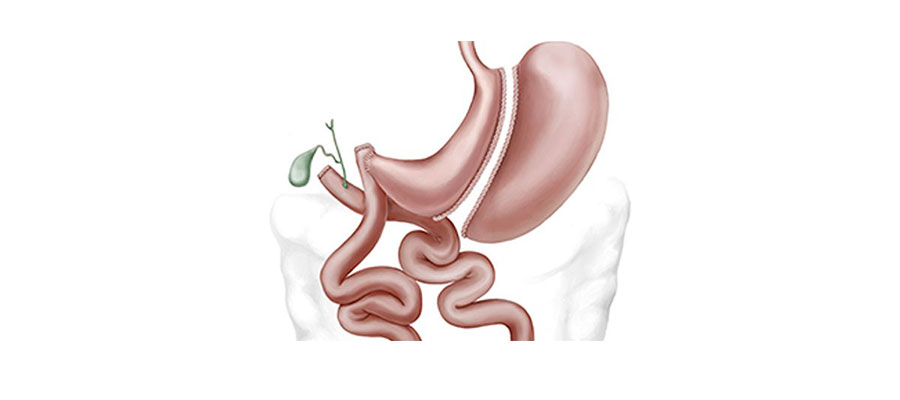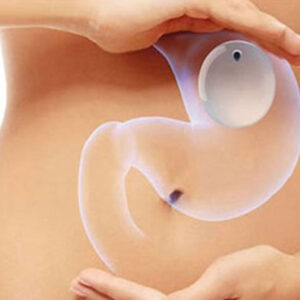
Duodenal Switch Surgery – A Comprehensive Guide
Duodenal switch surgery is a complex weight-loss procedure that combines two surgical techniques: restrictive and malabsorptive. This article will provide an in-depth look at this procedure, its benefits, and why Turkey, particularly under the expert hands of Dr. Mehdi Deniz, is a preferred destination for many patients seeking duodenal switch surgery.
What is duodenal switch surgery?
Duodenal switch surgery, also known as biliopancreatic diversion with duodenal switch (BPD/DS), is a bariatric surgery that promotes weight loss by reducing the size of the stomach (restrictive) and rerouting the small intestine to limit the absorption of calories (malabsorptive). This dual approach makes it one of the most effective weight-loss surgeries available today.
Benefits of Duodenal Switch Surgery
Duodenal switch surgery offers several benefits. It results in significant and long-term weight loss, often more than other bariatric procedures. It also improves or resolves obesity-related health conditions such as type 2 diabetes, high blood pressure, and sleep apnea. Moreover, patients can enjoy a relatively normal diet post-surgery, albeit in smaller portions.
Duodenal Switch Surgery in Turkey
Turkey has become a popular destination for duodenal switch surgery due to its affordability and high-quality healthcare. The duodenal switch surgery cost in Turkey is significantly lower than in the United States and Europe, without compromising on the quality of care or surgical outcomes.
Why choose Dr. Mehdi Deniz?
Dr. Mehdi Deniz is a renowned bariatric surgeon based in Turkey, specializing in duodenal switch surgery. With years of experience and a track record of successful surgeries, Dr. Deniz offers personalized care and attention to each patient. His expertise and dedication to patient safety and satisfaction make him a top choice for those considering duodenal switch surgery in Turkey.
Advantages of Duodenal Switch Procedure
Duodenal switch surgery is a type of bariatric surgery that helps patients lose weight by reducing the size of the stomach and rearranging the digestive system. This procedure is known for its effectiveness in treating morbid obesity as well as for its ability to address related health issues such as diabetes, hypertension, and high cholesterol. Duodenal switch surgery has been found to be the most effective bariatric procedure for weight loss and long-term weight maintenance. Patients who undergo this surgery generally experience a significant and sustained reduction in body weight, as well as a marked decrease in the risk of developing metabolic diseases such as diabetes. In addition, this procedure has been found to improve overall health and quality of life for many patients.
Notable Reduction in Weight
- Research has demonstrated that duodenal switch surgery leads to a substantial decrease in weight, as patients frequently shed 60–80% of their surplus body weight in the initial year following the operation.
- The utilization of both restrictive and malabsorptive methods enables more significant weight loss in comparison to alternative bariatric surgeries.
Enhancements in Health Conditions Associated with Obesity
- Numerous obesity-related health conditions, including type 2 diabetes, hypertension, sleep apnea, and high cholesterol, have been observed to improve or be resolved through duodenal switch surgery.
- This surgical procedure can result in decreased reliance on medications and an overall enhancement in health and quality of life.
Increased Feeling of Fullness and Decreased Appetite
- The decrease in the size of the stomach and the redirection of the small intestine lead to an increased feeling of fullness and a decreased appetite, which facilitates individuals following a healthier diet and managing portion sizes more effectively.
Risks About Duodenal Switch
Duodenal switch surgery may also increase the risk of certain health conditions, including gallstones, hernias, and nutritional deficiencies. Additionally, individuals should be aware that long-term nutritional monitoring is required to monitor and prevent nutritional deficiencies.
Insufficient Nutrients
- The surgery’s malabsorptive aspect may expose patients to the possibility of insufficient nutrients, especially vitamins and minerals like vitamin D, vitamin B12, iron, and calcium.
- Consistently monitoring nutrient levels and following a lifelong supplementation plan is essential to avoid deficiencies and sustain excellent health.
Dumping Syndrome
- Dumping syndrome is a potential complication of duodenal switch surgery, characterized by symptoms such as nausea, vomiting, diarrhea, and dizziness.
- This occurs when food moves too quickly through the digestive system, leading to a rapid release of glucose into the bloodstream.
- Adhering to dietary guidelines and eating smaller, more frequent meals can help minimize the risk of dumping syndrome.
Surgical Risks
- As with any surgical procedure, duodenal switch surgery carries risks such as infection, bleeding, blood clots, and adverse reactions to anesthesia.
- It is important to discuss these risks with a qualified surgeon and weigh them against the potential benefits of the surgery.
Restoration Journey of Duodenal Switch Patient
Hospital Stay
- Most patients will need to stay in the hospital for 2-3 days following duodenal switch surgery.
- During this time, the medical team will monitor the patient’s condition, provide pain management, and ensure proper healing.
Dietary Progression
- The recovery process involves a gradual progression from a liquid diet to a soft diet and eventually to solid foods.
- The surgeon and dietitian will provide specific guidelines on the types of foods to consume and the portion sizes to follow.
Physical Activity
- Patients are encouraged to engage in light physical activity, such as walking, as soon as possible after surgery.
- Regular exercise plays a crucial role in weight loss and overall health maintenance.
Lifetime Benefits of Duodenal Switch
Long-Term Weight Reduction
- Research has demonstrated that duodenal switch surgery leads to enduring weight reduction.
- Nevertheless, it is essential to acknowledge that outcomes may differ for each person, and adhering to dietary and lifestyle modifications is vital for sustaining weight loss.
Improvement in Obesity-Related Health Conditions
- Many obesity-related health conditions, such as type 2 diabetes, high blood pressure, and sleep apnea, have been found to improve or resolve following duodenal switch surgery.
- Regular follow-up with healthcare providers is essential to monitor and manage these conditions.
Enhanced Quality of Life
- Duodenal switch surgery can lead to an improved quality of life, including increased mobility, improved self-esteem, and a reduced risk of obesity-related complications.
Conclusion
Duodenal switch surgery is a highly effective weight-loss procedure that combines restrictive and malabsorptive techniques. It offers significant weight loss, improvement in obesity-related health conditions, enhanced satiety, and reduced hunger. However, it is important to consider the potential risks and complications associated with the surgery, as well as the necessary lifestyle changes and long-term commitment to maintaining weight loss. Consulting with a qualified surgeon and healthcare team is crucial in determining if duodenal switch surgery is the right option for an individual’s weight loss journey.













Thanks to gastric sleeve surgery, the quality of my life has improved significantly. I feel healthier and more energetic.
Dr. Thanks to Mehdi Deniz's detailed information before the surgery and careful follow-up after the surgery, the surgery process was easier than I expected.
Weight loss after gastric sleeve surgery was quite impressive for me. However, I learned that for the process to be successful, I need to exercise regularly and continue to eat healthy.
My concerns were reduced thanks to my doctor's friendly and understanding approach before and after the surgery. He took care of me at every stage of the process and gave clear and concise answers to my questions.